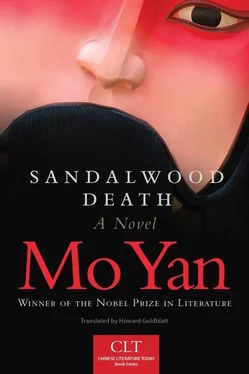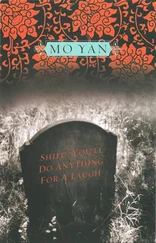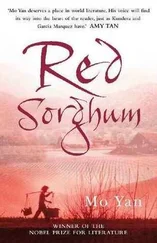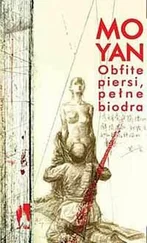“This was a seminal moment in the history of Maoqiang opera. Chang Mao’s sung recitation surpassed women’s cries of anguish and men’s dry-eyed wails. He brought solace to the grief-stricken and entertainment to the uninvolved, launching a revolution in traditional funeral expressions of bereavement and giving rise to a new era with fresh sights and sounds. It was like a Buddhist devotee laying eyes on the Land of Ultimate Bliss, with celestial flowers raining down, or someone covered in dirt slipping into a bath to wash away the grime, then drinking a pot of hot tea to force sweat out of every pore. And the talk began, how Chang Mao was more than a fine mender of crockery, that he had a voice that resounded like a brass bell, an unrivaled memory, and the gift of eloquence. As time went on, more and more grieving families requested his attendance at graveside ceremonies, asking him to appease the souls of the departed and lessen the sorrows of the survivors. Understandably, at first he declined the requests. Why in the world would he offer vocal laments at the gravesite of a total stranger? No, he’d say the first time, and the second. But the third invitation was always difficult to turn down—did not Liu Bei manage to get Zhuge Liang to his cottage the third time he asked? Besides, they would be fellow townsmen, tied together one way or another, people you could not help meeting from time to time, and in a hundred years or so, everyone would be related anyway. So if he could not do something for the sake of the living, he ought to do it for the departed. Seeing a dead man is like encountering a tiger; seeing a dead tiger is like meeting up with a lamb. The dead are noble, the living worthless. So he went. Once, twice, a third time… and he was always treated as an honored guest, warmly welcomed by all. Human waste spoils a tree’s roots; spirits and good food intoxicate a man’s heart. How could a lowly crockery mender not be moved by such expansive treatment? And so he put his heart into what he was asked to do. A honed knife is sharp; a practiced skill is perfected. Each funeral gave him an opportunity to whet his skills, until finally his artistry was unmatched. In order to introduce something new into his art, he called upon the wisest man in town, Ma Daguan, to whom he apprenticed himself as a student of tales, ancient and new. Then each morning he went alone to the riverbank to practice his singing voice.
“The first to ask Chang Mao to sing at funerals were humble families, but once word of his artistry began to spread, well-to-do families sought his services as well. During those days in Northeast Gaomi Township, any burial ceremony in which he participated became a grand event. People came from miles around, bringing with them the elderly and the very young. And the ceremonies in which he did not participate? However lavish the procession or plentiful the sacrificial offerings might be—banners and pendants blotting out the sun, forests of food and rivers of liquor—the turnout would be sparse. The day finally arrived when Chang Mao laid down his pole and mending tools for the last time and began life as a master bereavement singer.
“People spoke of a local family of bereavement singers in the Confucian homeland whose womenfolk had fine voices. But their specialty was to assume the roles of surviving family members of the deceased to wail and howl songs of piteous sorrow, and bore no resemblance to Chang Mao’s performances. Why compare those bereavement singers to our Patriarch? Because many decades ago, a rumor spread that the founder of our tradition had set out on the path of bereavement singing inspired by Confucian singers. So I made a special trip to Qufu, the birthplace of Confucius, and found that women who sang bereavements still existed there, but that their songs had few lines, mostly “Oh, heaven! Oh, earth!” Our Patriarch’s artistry went far beyond that. Comparing those women to him is like equating heaven with earth or a pheasant with a phoenix.
“Our Patriarch improvised at gravesites, weaving the life of the deceased into his lyrics. He had a quick wit and a brilliant tongue, rhyming in all the right places, colloquial and easy to understand, but soaring with literary grace. His lines of sorrow were essentially a funeral elegy. As demands to meet his listeners’ expectations intensified, he no longer limited his recitations to the life and virtues of the deceased, but introduced philosophical views of life in general. And Maoqiang opera was born.”
At that point in my narration, I turned to see the Magistrate, who was sitting outside the condemned cells, cocking his ear as if listening to what I was saying. Go ahead, listen. I want you to hear. If you don’t have an ear for Maoqiang, you’ll never truly understand Northeast Gaomi Township. Ignorance of its history means you cannot comprehend what is in the hearts of its residents. So I raised my voice even though my throat burned and my tongue ached.
“I said at the beginning that our Patriarch had a cat, a very clever cat, much like the Red Rabbit steed the Three Kingdoms hero Guan Yu rode. He loved that cat, and the cat loved him back. He never went anywhere without it. When he sang a graveside elegy, that cat would sit on the ground in front of him, listening intently, and when the sorrowful climax was reached, it joined in with a doleful howl of its own. The Patriarch’s voice stood out among his peers; the cat’s howls were themselves incomparable. Owing to the shared intimacy, people of the day took to calling him “Chang the Cat,” since the word for cat— mao —sounded the same as his name.
“Even now, there is a popular ditty in Northeast Gaomi Township that goes——
“Better to hear Chang Mao screech than listen to the Master teach,” Xiao Shanzi said with deep emotion.
“Well, one day the cat died; how it died is unclear. One version ascribes it to old age. Another insists that it was poisoned by an out-of town-actor who was envious of the Patriarch’s talent. There is even a version in which the cat was strangled by a vengeful woman who was rebuffed by the Patriarch in her desire to become his wife. Whatever the truth, the cat did die, an event that so traumatized our Patriarch that he held the cat in his arms and cried for three days and nights, interspersing his wails with songs of bereavement, until blood leaked from his eyes.
“After overcoming the worst of his grief, the Patriarch fashioned two items of cat clothing from the skins of wild animals. The smaller of the two, made from the pelt of a feral cat, he wore on his head for daily use—ears rising from each side, tail hanging down past the nape of his neck alongside his modest queue. The larger item, made from the skins of a dozen or more cats, was a ceremonial robe, trailing a long cat’s tail behind him; he wore it thereafter when he performed graveside bereavements.
“The death of his companion initiated a major change in the Patriarch’s singing style. Before that, cheerful banter had been woven into his songs; now forlorn strains dominated from start to finish. There was also a change in his singing style, for now the desolate contents were dotted with dulcet or melancholy or bleak cat cries that changed constantly, like a series of interludes. The new style not only has survived to this day, but has become the central feature of Maoqiang opera.”
“Meow—— Meow—” On an impulse, Xiao Shanzi interrupted my narration with a pair of cat cries pregnant with nostalgia.
“After the death of his cat, our Patriarch adopted the walking and speaking style of a cat, as if possessed by the spirit of his dead companion. He and his cat had become one. Even his eyes underwent a change: slitted during the day, they glowed in the darkness of night. Then one day the Patriarch died, and a legend was born that he turned into a large cat on his deathbed, but with wings that grew from his shoulders and carried him through the window and onto the limb of a giant tree. From there he flew straight to the moon.
Читать дальше












